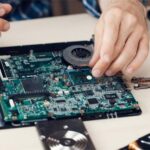IoT SIM Cards: Unleashing the Potential of Connected Technology
In the ever-evolving landscape of technology, the Internet of Things (IoT) has emerged as a game-changer, connecting devices and systems across industries and sectors. At the heart of this digital revolution lies a small but powerful component: the IoT SIM card.
These specialized SIM cards are the unsung heroes that enable seamless communication and connectivity for IoT devices. In this article, we will explore the significance of IoT SIM cards and how they are unlocking the potential of connected technology.
Key Aspects of IoT SIM Cards
1. Network Connectivity
The primary function of IoT SIM cards is to establish and maintain network connectivity for IoT devices. They enable these devices to connect to cellular networks, facilitating data transmission and communication.
2. Network Compatibility
IoT devices can operate in diverse environments with varying network infrastructures. IoT SIM cards are designed to be compatible with a wide range of network technologies, including 2G, 3G, 4G, and emerging 5G networks, ensuring consistent connectivity regardless of location.
3. Cost-Efficiency
IoT SIM cards offer cost-effective data plans tailored to the specific requirements of IoT applications. This cost-efficiency is crucial for organizations looking to deploy and manage large numbers of IoT devices without incurring exorbitant expenses.
4. Remote Management
Many IoT SIM cards come equipped with remote management capabilities. This allows IoT device operators to remotely configure, monitor, and manage their SIM cards, simplifying the management of extensive IoT deployments.
5. Security Features
Security is a paramount concern in the IoT landscape. IoT SIM cards often incorporate robust security features such as authentication and encryption to protect the integrity and confidentiality of data transmitted between devices and cloud platforms.
IoT SIM Cards in Action
- Smart Cities
IoT SIM cards play a pivotal role in powering smart city initiatives. They enable the connectivity of sensors and devices used in applications such as smart traffic management, waste collection optimization, and environmental monitoring.
- Healthcare
In the healthcare sector, IoT SIM cards facilitate remote patient monitoring, wearable health devices, and medication adherence systems. These cards ensure the seamless transmission of critical patient data to healthcare providers in real-time, improving patient care and reducing healthcare costs.
- Industrial IoT (IIoT)
The Industrial Internet of Things relies heavily on IoT SIM cards to connect machines, sensors, and control systems. This connectivity enables predictive maintenance, remote monitoring, and automation in industries like manufacturing and logistics.
- Agriculture
In agriculture, IoT SIM cards empower precision farming practices by connecting sensors and equipment that monitor soil conditions, weather patterns, and crop health. Farmers can make data-driven decisions to optimize crop yields and resource utilization.
- Retail and Inventory Management
IoT SIM cards are instrumental in tracking inventory and enhancing supply chain efficiency in the retail sector. Connected devices, such as RFID tags and sensors, help retailers manage stock levels, reduce theft, and provide a more personalized shopping experience.
Conclusion
IoT SIM cards may be small in size, but their impact on the world of connected technology is monumental. As IoT continues to evolve and expand its reach, the importance of reliable and efficient IoT SIM cards cannot be overstated.
They are the enablers of a smarter, more connected future, where data-driven insights and automation are the driving forces behind progress and innovation. Understanding the role of IoT SIM cards is key to harnessing the full potential of connected technology and unlocking a world of possibilities.







